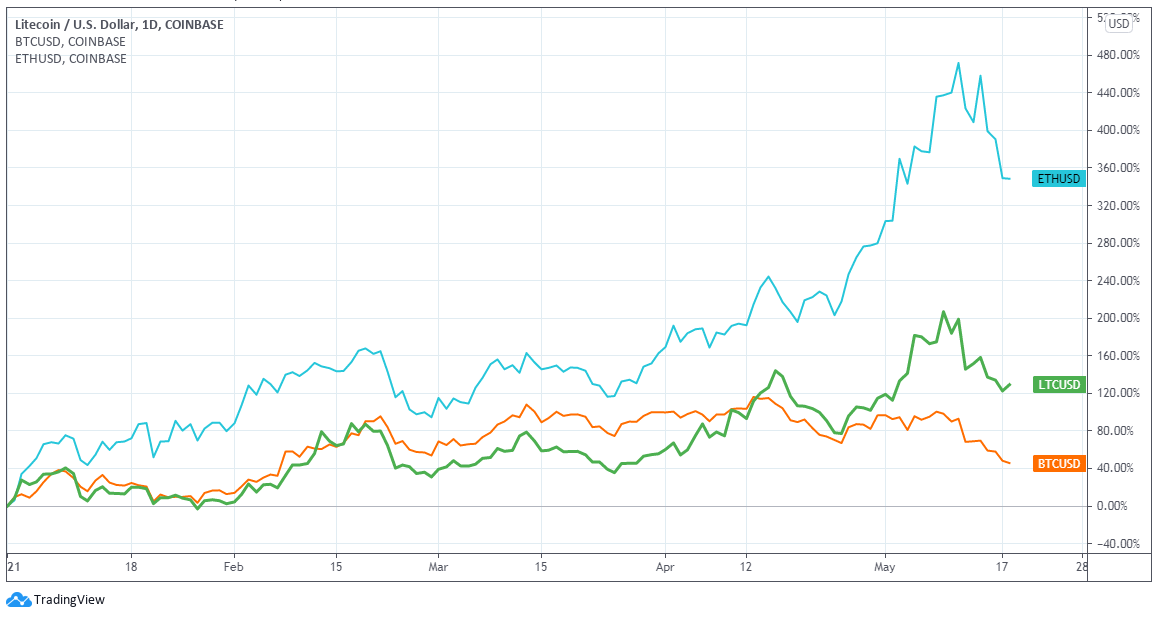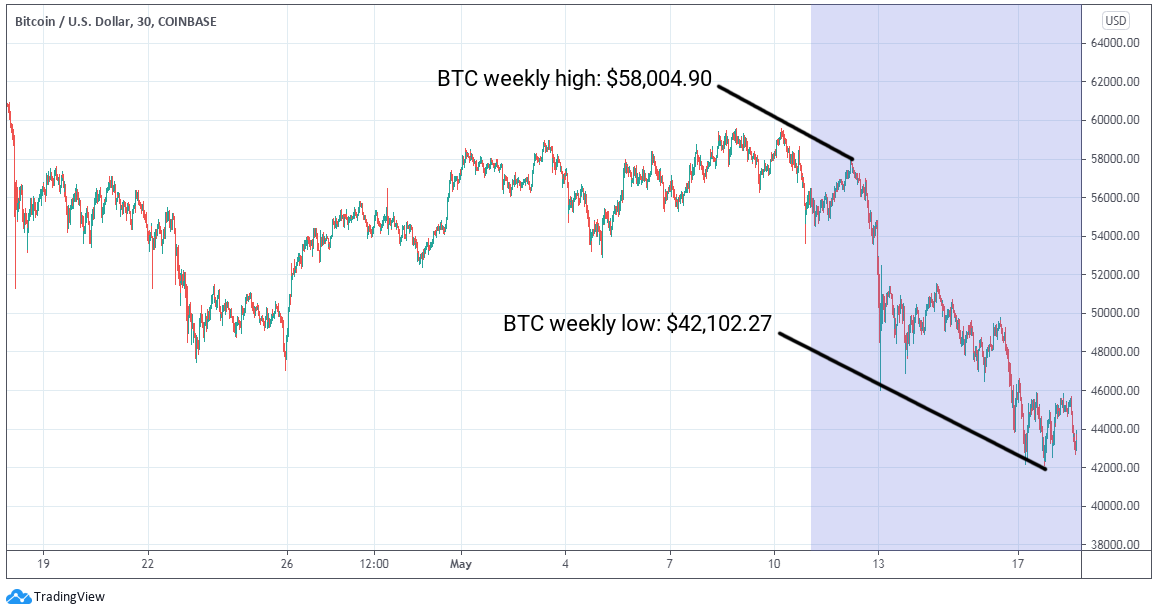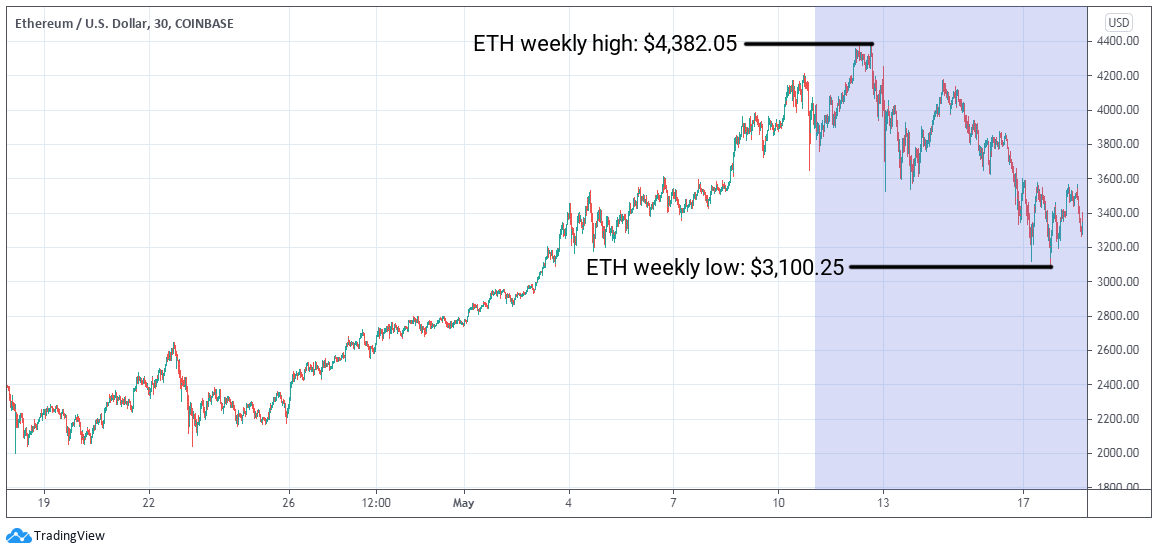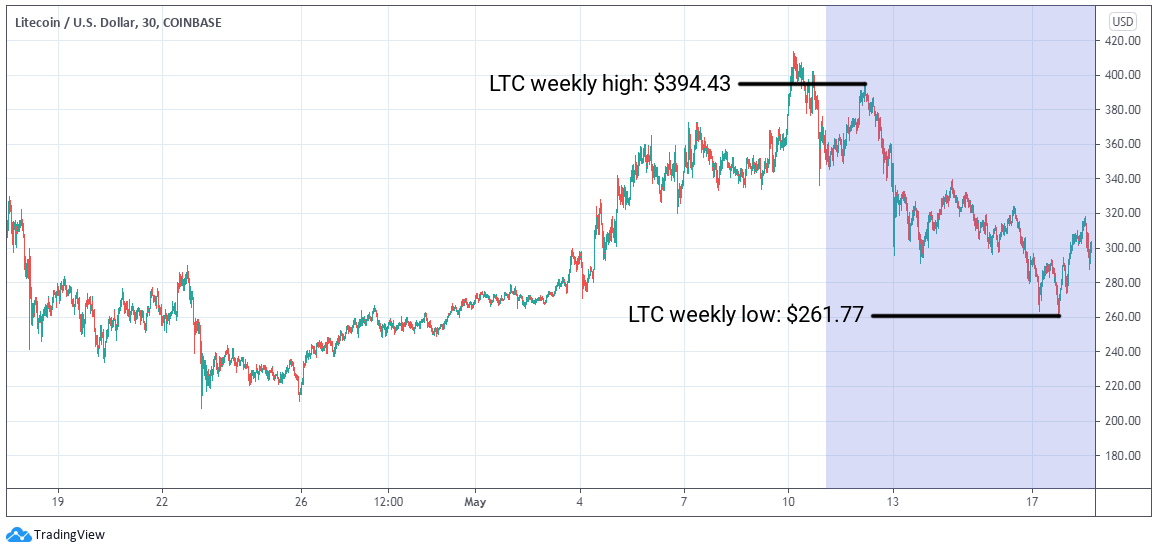- The Elon Musk Effect. A mercurial CEO with a penchant for obscure jokes, late-night Twitter rants and whipping up his legion of devoted young followers.
Just a couple of months after helping to push the bitcoin price beyond $60,000 by buying $1.5bn of the cryptoasset for his company’s treasury reserves, Elon Musk performed a rapid volte-face, criticising the network’s environmental impact and apparently stopping purchases of Tesla vehicles with bitcoin to focus instead on meme coin Dogecoin.
The move laid Musk wide open to a series of criticisms. Firstly, that he had failed to do any due diligence on Bitcoin before committing billions of shareholder cash to a two-month bet, and secondly that he was repeating widely-debunked claims about Bitcoin’s energy use.
This is the Elon Musk Effect. A mercurial CEO with a penchant for obscure jokes, late-night Twitter rants and whipping up his legion of devoted young followers. His entry into crypto certainly generated far more headlines than that of other very large institutional investors .
Bitcoin’s energy use and environmental impact is one fraught with misconceptions and ill-reported statistics. At the heart of the issue is the point that — for proof-of-work networks — energy expenditure is a function of keeping the network secure. But Musk’s tweeted charge, that bitcoin’s per transaction energy use is “insane” is demonstrably false: transactions make up a tiny fraction of the overall mix.
Musk then said that Tesla had not sold any Bitcoin, that he was working with Dogecoin developers to improve the efficiency of the joke coin’s transactions, and asked his followers if they wanted Tesla to instead accept DOGE for the company’s electric vehicles.
Musk’s claims have hit stringent criticism by researchers seeking to both point out the stain of potential market manipulation through social media and to correct the record over Bitcoin’s ESG credentials, as more miners join the UN-backed Crypto Climate Accord and renewable energy usage climbs. New York’s Greenridge Generation Holdings follows the likes of NASDAQ-listed Cleanspark, becoming just the latest miner to commit to offsetting all greenhouse gas emissions from its bitcoin mining facilities.
If nothing else, the whole Elon Musk saga has shone a much-needed spotlight on the debate over commodity investment ESG credentials, highlighting the use of ‘stranded’ energy at the edge of the grid to mine Bitcoin, and the wholesale decarbonisation move to net zero in line with every other major industry.
CheapETH, Binance hacks show critical value of Ethereum network security
Institutional investors demand investment products which can boast iron-clad security, ease-of-access, and the additional risk reduction of being centrally-cleared, and so should they. Nowhere were these benefits more obvious than in a raft of hacks on unsecured products at the fringes of crypto markets this week.
One white-hat hacker (one with ethical intent, in the parlance of cybersecurity) exhibited precisely the reason why hashrate and network security is so important to proof of work cryptoassets. Anis Agnihotri, an intern at crypto hedge fund Polychain Capital took the example of one very small and poorly-supported Ethereum clone, called CheapETH. Using just $100-worth of rented computing power, the teenager was able to control more than 70% of the network’s hashrate.
One method to attack a proof-of-work blockchain is to perform what is called a ‘51% attack’. If a malicious actor can gain control of a plurality of the nodes that update and confirm the correct version of a blockchain’s distributed ledger, they can alter it to suit their desires, including carrying out a ‘double spend’; effectively spending a cryptocurrency and then uploading a false version of the ledger to hide the transaction.
With very large cryptoassets like Bitcoin, Ethereum or Litecoin, whose nodes are decentralised and distributed worldwide, 51% attacks are functionally near-impossible, as it would take several billion dollars to rent enough hashpower to control enough nodes.
The success of Ethereum — and by extension the success of the ETH currency — is a function of its network effects. Launched six years ago it has overwhelming first-mover advantage and broad market adoption. That’s not always the case with its competitors.
Would-be Ethereum rival Binance suffered its third major multi-million dollar hack in a month when another DeFi protocol on its BSC blockchain was breached, this time for $11m. According to researchers Peckshield, the incident was due to a bug in the internal smart contract logic of the BearnFinance DeFi app. Hackers were able to exploit the fact that withdrawal amounts were incorrectly demominated in Binance’s non-yield stablecoin BUSD, instead of its interest-bearing USD-pegged stablecoin ibBUSD.
Overall, in the last three months, large-cap altcoins Ethereum (blue line) and Litecoin (green line) have broadly outperformed Bitcoin. BTC’s proportion of the total cryptoasset market cap has continued to decline this year and now sits at below 40%, a three-year low, while commensurately, Ethereum’s market dominance has skyrocketed to nearly 20%, a three-year high.
 Source: TradingView
Source: TradingView
Regulations and adoption rise in US, Spain
Amid all the talk of price speculation, the critical regulations that keep the cryptoasset market moving forward have received relatively little airtime, but there have been some massive moves made in the legal arena this week.
Firstly in the US, Nebraska state lawmakers advanced Bill 649 by 39 votes to 1 , a measure for banks to potentially offer bitcoin services. The state is vying to become the second American jurisdiction after Wyoming to allow the creation of cryptocurrency-powered banks.
The Bill’s sponsor, Senator Mike Flood, told the legislature that a move in favour would be a “once in a lifetime opportunity” to help attract highly-paid technology and finance jobs to the state.
Caitlin Long’s Avanti Financial became Wyoming’s second crypto bank in October 2020, joining San Franscico cryptoexchange Kraken as the only other crypto institution to hold a banking charter under the state’s Special Purpose Depository Institutional legislation.
Since June 2020 federally-chartered US banks have been allowed to legally custody cryptoassets for their clients, as per the Office of the Comptroller of the Currency, and in the months since the doors have been flung wide open for states to grab a piece of this lucrative action. The world’s largest custodian bank by assets, BNY Mellon, made the move into crypto in February 2021.
It’s worth noting the parallel between Wyoming and Nebraska’s moves with that of Delaware, too.
Despite being the seventh-smallest of the 52 US states and jurisdictions (including Washington DC, Puerto Rico, Alaska and Hawaii) Delaware is the 10th-largest in terms of per-capita GDP and receives more than 40% of its total tax revenue from business license taxes. Delaware, incidentally, has attracted some 67% of Fortune 500 companies to register inside its borders.
Across the Atlantic in Spain, the country’s financial regulator, the National Securities Market Commission (CNMV) has now formally allowed institutional funds to invest in bitcoin. As reported by Spanish-language financial website Criptonoticas, the Iberian regulatory body also established that collective investment institutions would be allowed to have exposure to bitcoin and other cryptocurrencies through derivatives, albeit with a couple of caveats; that the settlement of derivatives cannot involve delivery of crypto, and that trading is restricted to professional investors.
The Associated Press reported on 13 May that Facebook’s beleaguered Libra project — since renamed Diem — would shift its operations to the US from its current location in Switzerland after failing to secure a payment system license from the Swiss Financial Markets Authority. Mark Zuckerberg’s social media behemoth originally intended to launch a stablecoin linked to a basket of world currencies when it launched in 2019, but faced intense pushback from regulators. Now the association says it plans to scale back those ambitions, instead partnering with Silvergate Bank to launch a stablecoin pegged solely to the US dollar.
Remittance giant MoneyGram is also seeking to grab a slice of the burgeoning cryptoasset market after seeing its market share decline in the face of P2P cross-border payments solutions like Litecoin, and more broadly fiat-pegged stablecoins like USDC, TerraKRW (tied to the South Korean won), and sEUR (fixed to the euro).
On 12 May the company said it was launching a service with crytpoexchange Coinme to allow US customers to buy BTC with cash in USD across 12,000 brick and mortar stores, to capture a “completely new“ customer base, adding it planned to expand internationally in the second half of 2021 and extend the move to potentially include other cryptoassets like Ethereum.
[This initiative is] specially designed for customers who may be interested in using bitcoin for the first time…MoneyGram has spent more than 80 years building one of the world’s largest P2P payment networks. By integrating its global infrastructure with our licensed cryptoexchange technology, we can enable the purchase and sale of cryptocurrencies across its system using cash.
Neil Bergquist, Coinme CEO
Markets
BTC/USD
Bitcoin struggled to hold its position in the wake of well-publicised outside factors this week, even if its internal economics have not altered. Starting the week just above $55,000, the world’s largest cryptoasset dipped below $1trn total market cap for the first time since crossing the milestone on 9 March 2021.
 Data as of May 18th, 2021 | Source: TradingView
Data as of May 18th, 2021 | Source: TradingView
ETH/USD
Ethereum retraced from its all-time high of $4,382.05 this week, ending a stunning climb which started in the $2,000 region and has lasted since 22 April. The programmable money blockchain showed stronger-than-normal correlation with Bitcoin, falling to a low of $3,100.25 before regaining some of that momentum to finish the week 9.7% higher.
 Data as of May 18th, 2021 | Source: TradingView
Data as of May 18th, 2021 | Source: TradingView
LTC/USD
Litecoin peaked this week at $394.43 before taking a tumble in line with the rest of the cryptoasset market, but bounced back more strongly than its large-cap altcoin peers in the wake of the broader slide. By the week’s end it had fallen 13.1%, but recaptured $300 from a low of $261.77.
 Data as of May 18th, 2021 | Source: TradingView
Data as of May 18th, 2021 | Source: TradingView
WICHTIGER HINWEIS:
Dieser Artikel stellt weder eine Anlageberatung dar, noch bildet er ein Angebot oder eine Aufforderung zum Kauf von Finanzprodukten. Dieser Artikel dient ausschließlich zu allgemeinen Informationszwecken, und es erfolgt weder ausdrücklich noch implizit eine Zusicherung oder Garantie bezüglich der Fairness, Genauigkeit, Vollständigkeit oder Richtigkeit dieses Artikels oder der darin enthaltenen Meinungen. Es wird davon abgeraten, Vertrauen in die Fairness, Genauigkeit, Vollständigkeit oder Richtigkeit dieses Artikels oder der darin enthaltenen Meinungen zu setzen. Beachten Sie bitte, dass es sich bei diesem Artikel weder um eine Anlageberatung handelt noch um ein Angebot oder eine Aufforderung zum Erwerb von Finanzprodukten oder Kryptowerten.
VOR EINER ANLAGE IN KRYPTO ETP SOLLTEN POTENZIELLE ANLEGER FOLGENDES BEACHTEN:
Potenzielle Anleger sollten eine unabhängige Beratung in Anspruch nehmen und die im Basisprospekt und in den endgültigen Bedingungen für die ETPs enthaltenen relevanten Informationen, insbesondere die darin genannten Risikofaktoren, berücksichtigen. Das investierte Kapital ist risikobehaftet und Verluste bis zur Höhe des investierten Betrags sind möglich. Das Produkt unterliegt einem inhärenten Gegenparteirisiko in Bezug auf den Emittenten der ETPs und kann Verluste bis hin zum Totalverlust erleiden, wenn der Emittent seinen vertraglichen Verpflichtungen nicht nachkommt. Die rechtliche Struktur von ETPs entspricht der einer Schuldverschreibung. ETPs werden wie andere Wer